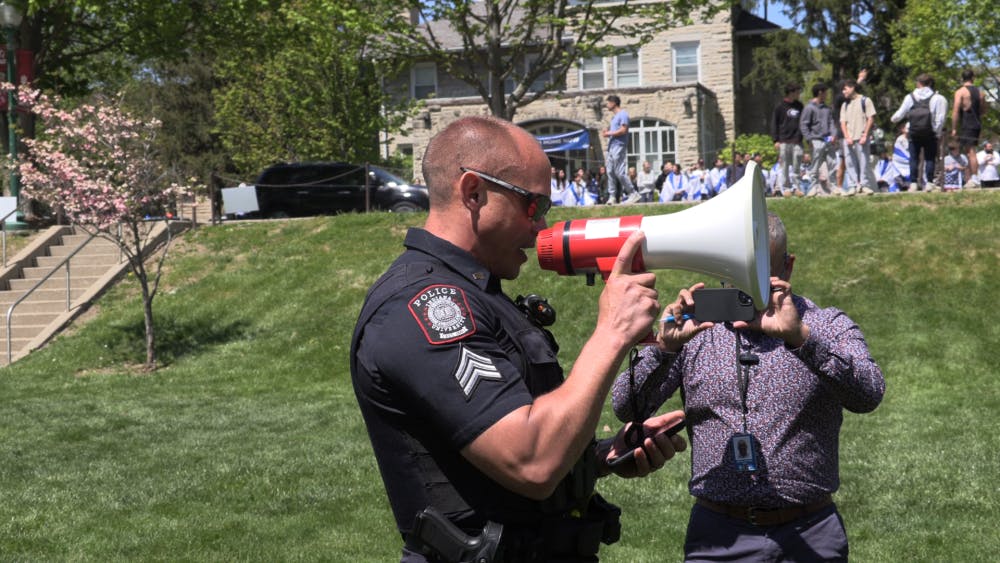BLOOMINGTON, Ind. — The Indiana University Board of Trustees voted 6-3 Monday to approve an expressive activity policy that sets new guidelines for when, where and how the IU community can protest on campus.
The policy goes into effect Aug. 1.
Kyle Seibert, Donna Spears, and Vivian Winston voted "no."
The remaining board members all voted "yes."
Under the new policy, which was drafted in June, expressive activity would be defined as “assemblies, speech, distribution of written material, carrying of signs, picketing, protests, counter-protests or sit-ins.”
Additionally, expressive activities would be prohibited in instructional, administrative, or residential purposes or areas not otherwise open to the general public, like classrooms, studios, laboratories, residential spaces and offices.
Encampments and overnight expressive activity are also prohibited under the proposed policy, which mirrors the policy changed late into the night on April 24, the night before the IU Divestment Coalition began their encampment.
The expressive activity policy sets restrictions on “temporary structures,” but does not specifically state what is considered a temporary structure.
However, the policy does mention that signs are not allowed to be posted onto any university-owned property without asking for approval at least 10 days in advance of the protest
Steve Sanders, Professor of Law for the IU Mauer School of Law, said the new policy does not violate First Amendment protections, but how the university enforces the policy could bring issues.
"The policy sets forth a set of guidelines that are neutral, that do not work to the disadvantage of any particular group or message," Sanders said. "The real issue will be when it's implemented, the choices the university makes under this policy, when push comes to shove about how to implement it, how to interpret it."
Last week, IU released the findings from an independent investigation into how the university handled the April protest.
The report concluded that while the decision to change Dunn Meadow policy was permissible, making said change the night before the planned encampment caused “a number of unintended negative consequences.”
“IU leadership’s decision to change the Dunn Meadow policy was permissible under university policies and applicable legal standards, including the First Amendment; however, doing so the night before the planned encampment caused a number of unintended negative consequences,” the law firm wrote in the report.
Among the eight recommendations the report listed for the university, one was to adopt an expressive activity policy.
The report also concluded that IU has had a decades-long history of “inconsistently” enforcing its policies, which leads to confusion for students, faculty and campus police.
"The Dunn Meadow report validated the need to update policies that were outdated, unclear and inconsistent across IU’s campuses,” Trustees Chair W. Quinn Buckner said. “Indiana University has a longstanding commitment to advancing free speech. In order for free speech for all to flourish, we needed to clarify our policies so people clearly understand the allowable time, manner and place for free expression. We can’t let one person or group’s expression infringe on the rights of others, disrupt learning experiences for our students or interrupt regular university business.”
Indiana State Police arrested 55 people on April 25-27, but the Monroe County Prosecutor’s Office declined to file any of the charges.










